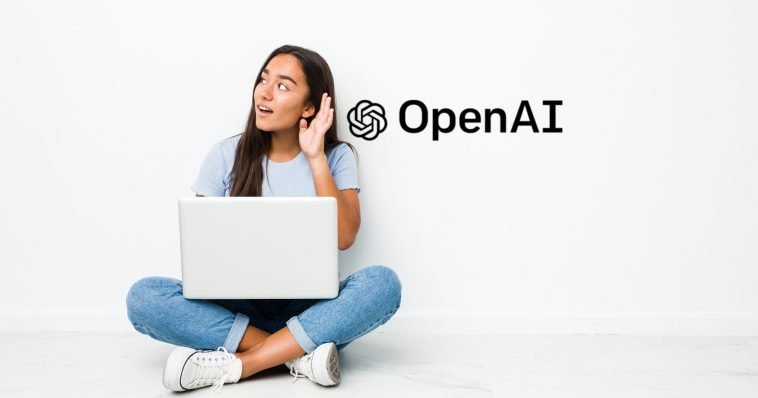Introduction.
Writing a song can feel both exhilarating and a little intimidating. You’ve got ideas, maybe even a melody in mind, but sometimes turning that inspiration into actual lyrics or a finished song feels like a huge leap.
That’s where ChatGPT comes in handy! As an AI language model, ChatGPT has become a valuable tool for creators by helping with brainstorming, drafting lyrics, generating catchy phrases, and even suggesting melodies.
So, if you’ve been thinking, “I wish I had a creative partner to help me write my next song,” this guide will show you exactly how to make ChatGPT your go-to songwriting assistant.
How Do I Write a Song With ChatGPT?
1. Start with a Song Idea.
Every song begins with an idea. Whether it’s a story, an emotion, or just a catchy phrase that won’t leave your head, decide on your theme or message first.
It could be about love, heartbreak, friendship, or even something humorous. Give ChatGPT a clear prompt to help it understand your theme. For example:
- “Help me write a song about feeling lost in a big city.”
- “Can you give me some lyrics about missing someone who’s far away?”
This gives ChatGPT context and helps it generate lines that stay on point.
2. Generate Lyric Ideas and Phrases.
Once you have your theme, ask ChatGPT for specific lyrics or lines. ChatGPT can suggest words or phrases based on the feeling, setting, or story you want to capture. Here’s how to get started:
- “Can you give me a few lines for a chorus about longing for home?”
- “Suggest some poetic ways to say ‘I miss you’ in a verse.”
You can even refine the output by asking for lyrics in a specific tone—maybe you want something melancholy, hopeful, or uplifting.
3. Experiment with Rhyme Schemes and Rhythms.
Different genres of music have different lyrical structures. ChatGPT can help you explore various options, like ABAB or AABB rhyme schemes, depending on the vibe you’re going for. Try prompts like:
- “Write me a verse with an ABAB rhyme scheme about staying strong through tough times.”
- “Suggest lines for a rap with an AABB rhyme pattern about achieving dreams.”
ChatGPT can even provide ideas for alternative structures if you’re looking to break away from the norm and experiment with something unique.
4. Refine and Edit.
A song often goes through multiple drafts, and ChatGPT is here for each one. Once you have a rough idea of your song’s lyrics, ask ChatGPT to help you refine them:
- “Can you rephrase these lines to make them more poetic?”
- “Make this line a bit more subtle or mysterious.”
By using ChatGPT’s editing ability, you can turn a simple line into something memorable.
5. Add Melody Suggestions (Optional).
While ChatGPT isn’t a musician, it can offer suggestions on rhythm and phrasing that might inspire melodies. For example:
- “What kind of melody would fit these lyrics if I want a slow, soulful vibe?”
- “Suggest some pacing for a catchy pop chorus.”
You could also ask ChatGPT to help you brainstorm melody concepts or provide song structures, like verse-chorus-verse patterns, to help guide your composition.
Pros and Cons of Using ChatGPT for Songwriting
Pros
- Endless Inspiration: ChatGPT offers fresh ideas and perspectives, which can be helpful when you hit a creative block.
- Quick Brainstorming: With just a few prompts, you get a lot of lyric options and can easily pick what resonates with you.
- Editing Assistance: It can help polish your lyrics, making them more engaging or poetic, depending on your needs.
- Genre Flexibility: ChatGPT adapts to various genres and tones, allowing you to experiment with different musical styles.
Cons
- Lacks Musicality: ChatGPT can’t generate actual melodies, so you’ll need to pair it with a music composition tool or your own musical skill.
- Generic Output: Without detailed prompts, ChatGPT might generate lyrics that feel generic or lack the emotional depth you want.
- Limited Emotional Insight: While ChatGPT understands basic concepts of emotion, it can sometimes miss the subtle nuances of personal experiences.
- Requires Direction: You need to provide clear, well-defined prompts to get the best results, which could be challenging if you’re not sure what you want.
Frequently Asked Questions
1. Can ChatGPT write a complete song for me?
Yes, ChatGPT can generate an entire song if you give it enough detail about your theme, style, and tone. However, the results might need some tweaking to capture exactly the emotion or sound you’re aiming for.
2. How do I make my song sound less generic?
Give ChatGPT specific details or personal anecdotes in your prompts. Instead of saying, “Write a song about love,” try something like, “Write a song about meeting someone unexpectedly and instantly feeling a connection.”
3. Can ChatGPT help with melody and music composition?
ChatGPT can’t produce actual melodies, but it can suggest rhythms, phrasing, and even offer genre-based guidance on how lyrics might be structured to match a specific mood or tempo.
4. What types of songs work best with ChatGPT?
ChatGPT works well across genres, from pop and rock to rap and country. It’s especially effective with lyrical storytelling and structured song formats.
5. Is ChatGPT good for collaborations or group songwriting?
Absolutely! ChatGPT can act as a “third collaborator,” offering lyric ideas and rhymes that you and your songwriting partner(s) can build on.
Conclusion
Using ChatGPT to write a song can feel like having a co-writer who’s always available to brainstorm, suggest, and polish ideas.
While it may not replace the creative spark only you can bring, it’s a great way to jumpstart ideas or get past a lyrical roadblock.
Whether you’re a seasoned songwriter or a beginner, ChatGPT can help you add depth and variety to your lyrics, experiment with new themes, or simply refine what’s already there.
So, what kind of song will you write with ChatGPT’s help?





GIPHY App Key not set. Please check settings